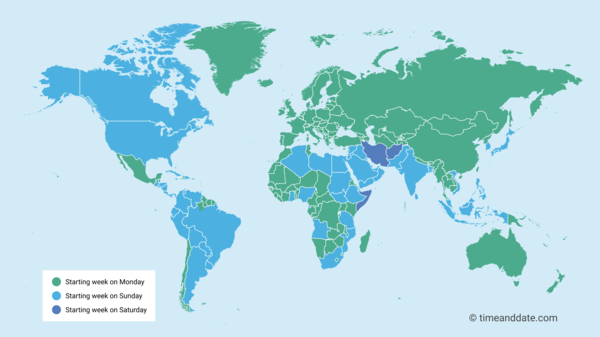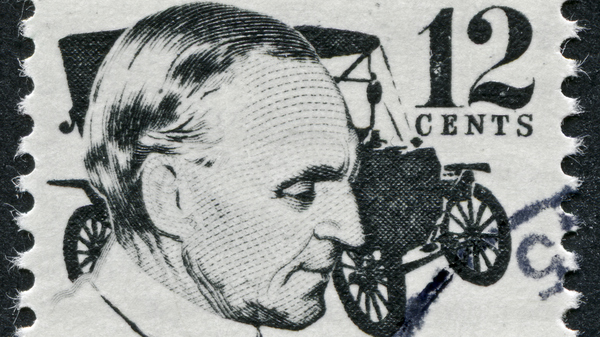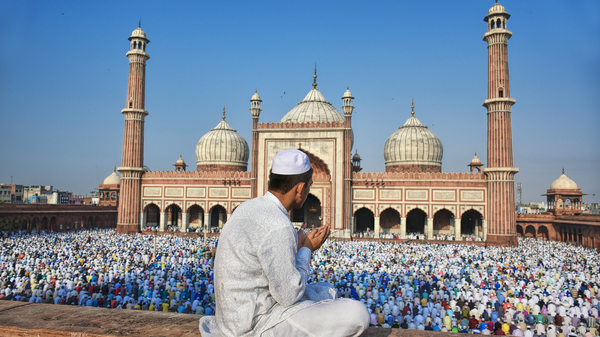What Is the First Day of the Week?
Sunday is the first day of the week for roughly half the world. Monday is the first day of the week for the other half.


Roughly 55% of the world's population start their week on a Sunday, 44% on a Monday.
©timeanddate.com
Evenly Split
Whether the Gregorian calendar shows Sunday or Monday as the first day of the week depends on where you live. Most countries start the week on Monday, but most people start on Sunday:
- 67 countries and over 4 billion people start the week on Sunday
- 160 countries and roughly 3.3 billion people start on Monday
- In terms of population, it is almost 50/50: Half the world’s population begins on Sunday
Almost all countries in North and South America start their week on Sunday, while countries in Europe and Oceania overwhelmingly start on Monday. The world’s most populated continents are split: roughly half the countries in Africa and Asia are on team Sunday, the other on team Monday.
There are countries starting neither on Sunday nor on Monday: Countries like Afghanistan, Iran, and Somalia start their week on Saturday.
Countries Starting on Sunday
- The United States and Canada
- Argentina, Brazil, Colombia
- South Africa, Nigeria, Egypt
- India, Pakistan
- Indonesia, Bangladesh
- Japan, South Korea
- Israel
- Saudi Arabia, United Arab Emirates
Countries Starting on Monday
- Germany, France, UK
- China, Thailand, Myanmar
- Australia, New Zealand
- Turkey, Iraq, Lebanon
- Congo (DR), Kenya, Uganda
Note: These lists are not complete. Find out the first day of the week anywhere in the world by selecting a country in our online calendar.
How Did Sunday Become the First Day?
The first day of the week for the last 5800 years has been named after the mightiest celestial body in our night sky—the Sun. The last day became known as the day of rest, the Sabbath.
Our oldest historical records go back to the Babylonians, roughly 5800 years ago. The Babylonians already had a 7-day week, starting with the day of the Sun. The other days were named after other celestial bodies and the corresponding Babylonian gods.

The Sun creates day and night, life and food. It only seems fitting to start our week with the day of the Sun.
© iStock.com/sihuo0860371
The ancient Greeks took over the Babylonian system, renaming the days of the week to fit the Greek gods. Their week started with the day of Helios, the Greek Sun god. When the Romans invaded Greece, they imported their system of weekdays as well.
The Romans renamed the Greek days and used Roman names for the bodies of our solar system: The Roman week then started with dies solis, the day of the Sun.
When the Romans invaded central Europe, Germanic tribes like the Saxons adopted the Roman week. Dies solis became Sunnandæg. When the Angles and the Saxons invaded Britain and made it Anglo-Saxon, they took their days with them—and Sunnandæg became Sunday.

Getting closer to the Sun has likely always been a religious exercise.
©iStockphoto.com/cowii
Sabbath And the Christian Sunday
But what about the Christian component? Isn’t Sunday the first day because it is the Lord’s day? Well, it’s complicated.
According to the Bible, God created the world in seven days. On the last day, God rested. The ancient Israelites followed this example and called their seventh day Shabbat, the day of rest. Shabbat, or Sabbath, has always been the day where Jews pray and worship God. In the Gregorian calendar, Shabbat falls on Saturday; in Judaism, Shabbat is followed by Yom Rishon, or “first day.”
More about the Jewish calendar
When Christianity started to emerge as a separate religion from Judaism, early Christians tried to differentiate themselves from Jews; and one way to be different was to pray on a different day. So, early Christians worshipped not on the Sabbath but one day earlier or one day later. They finally decided to worship on Sunday when Christianity became the Roman Empire’s state religion under Emperor Constantine in 321 CE. Sunday became the Christian day of worship, later known as Lord’s Day.
Why Is Monday the First Day?
Sunday has been the first day of the week for the entire recorded history of civilization. How come half the world is not following along?
The Invention of the Weekend
Until about 100 years ago, people worked six days a week, every week. Sundays would be reserved for going to church, at least if you were Christian or lived in a Christian country. The only widespread exception were Jewish workers: they generally got Saturdays off instead of Sundays.

American businessman Henry Ford played a significant role in inventing the modern weekend.
© iStock.com/traveler1116
In 1926, Henry Ford started giving his employees two days off: Saturday and Sunday. Other companies had started similar experiments with great results—productivity went up. Six years later, the five-day week was officially introduced in the USA.
With the introduction of the weekend as “free time” in 1932, the days of rest were defined by the economy and no longer defined by religion. The work week was now the measurement of time—the week started on Monday and ended on Friday.
Setting the Standard: ISO 8601
In 1988, the change from Sunday to Monday was made official—with the international standard ISO 8601.
The International Organization for Standardization (ISO), founded in 1946 in Switzerland, has issued several standards concerning time and dates. Perhaps the most prominent one is ISO 8601: First published in 1988 and continuously updated, it defines Monday as the first day of the week.
Virtually all European countries follow this standard and have adopted Monday as their start of the week. Many countries worldwide that have changed or updated their calendars more recently also follow the international standard.
Saturday: The Third Option
Sunday and Monday are not the only options to start your week: Calendars in Iran, Afghanistan, and Somalia show Saturday as the first day and Friday as the last day of the week.

Religion has been defining the day of rest for millennia. Friday is the main prayer day for Muslims, so many used to start their week on Saturday. This practice has only changed since the year 2000.
©iStockphoto.com/SHAILENDRA_PRAKASH_ASHISH
While Jews pray on Shabbat and Christians on Sundays, Muslims focus their worship on Fridays. Muslims are called to pray every day, but the Friday afternoon prayer is of special significance; in Arabic, the Friday is called Yaum al-Jum’a, the gathering day. For this reason, many Muslim countries had their weekend on Thursday and Friday and would start the week on Saturday.
This changed in 2000 when Jordan shifted to the Friday-Saturday weekend. Since then, most countries in the Middle East and other Muslim-majority countries have switched to the Friday-Saturday weekend. They start their work week on Sunday.
Note from the editor: In our research, we rely on local calendars and local sources to bring you the most accurate results we can. If you discover any mistakes or think we should add something, please let us know. Keep in mind that many sources out there are inaccurate, even when other sites cite them. If you send us a claim, please back it up with local sources.